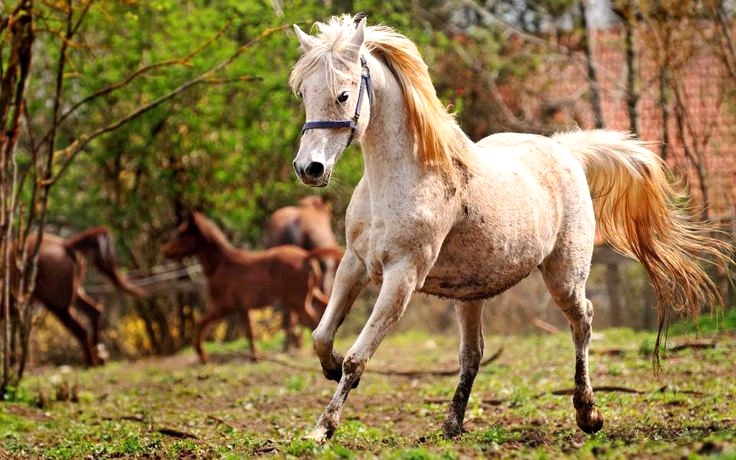With the increasing amount of horse racing around the world, more and more ex-racehorses are appearing on the market looking for homes. But do these horses really make good horses for the average person? Is there a good way to assess an ex-racehorse for the average person? In this article, we will take a closer look at the pros and cons of owning an ex-racehorse and the best way to assess them.
⭐⭐⭐⭐⭐

⭐⭐⭐⭐⭐

The Pros
1. Racing Experience
The main advantage to owning an ex-racehorse is that they usually have a lot of experience with racing and the associated activities. This means that they will often have a higher level of understanding of how to handle the starting gates, the finish line, and the other activities that come along with racing. In addition, they will usually have some experience with being around the track and the general environment of a racehorse.
2. Physically Fit
Another advantage to owning an ex-racehorse is that they are usually quite physically fit. This means that they will usually have a higher level of fitness than other horses, which can be beneficial for activities such as jumping, dressage, and eventing. Furthermore, they will often have a higher level of athleticism, which can be beneficial in sports such as showjumping and eventing.
3. Calm Temperament
Another advantage to owning an ex-racehorse is that they typically have a more calm temperament. This means that they are usually easier to train, and they tend to be more forgiving of mistakes. Furthermore, they are usually less prone to spooking or bolting, which can be beneficial in activities such as hacking and dressage.
The Cons
1. Training and Conditioning
One of the main drawbacks to owning an ex-racehorse is that they may need to undergo extensive training and conditioning before they are suitable for non-racing activities. This is because they may have been trained for a specific purpose, such as running a certain distance at a certain speed, and they may need to relearn a different way of going. This can be time-consuming and costly, and it may not be suitable for everyone.
2. Risk of Injury
Another disadvantage to owning an ex-racehorse is that they may be more prone to injury. This is because they may have been trained to run at higher speeds and for longer distances, which can put extra strain on their bodies. Furthermore, they may have been subjected to more intense training methods, which can also increase their risk of developing injuries.
3. Cost
Lastly, ex-racehorses can be quite expensive. This is because they usually have a high level of training and experience, and they can be quite desirable for people looking for a competitive or show horse. In addition, they may require more intensive care and maintenance, which can add to the cost of ownership.
Assessing an Ex-Racehorse
1. Veterinary Check
When considering the purchase of an ex-racehorse, it is important to have a full veterinary check performed. This is because ex-racehorses may have sustained injuries during their racing career, which can affect their performance and long-term health. A thorough veterinary check should include an examination of the horse’s heart and lungs, as well as a musculoskeletal examination.
2. Check Racing History
Another important step when assessing an ex-racehorse is to check their racing history. This is because their history may provide some insight into how they were trained and managed, and it can also give an indication of their level of experience and success.
3. Ask the Right Questions
When assessing an ex-racehorse, it is important to ask the right questions. This is because some horses may have been subjected to intense training or management practices, which may not be suitable for non-racing activities. Asking questions about their racing history, training, and management can help to determine if the horse is suitable for non-racing activities.
4. Check Riding Ability
Another important step when assessing an ex-racehorse is to check their riding ability. This is because some horses may have been trained to run at higher speeds and for longer distances, which may mean that they are less suitable for activities such as dressage or showjumping.
5. Consider the Horse’s Temperament
When assessing an ex-racehorse, it is important to consider their temperament. This is because some horses may have been subjected to intense training or management practices, which may have resulted in a more difficult temperament. Asking questions about their racing history, training, and management can help to determine if the horse is suitable for non-racing activities.
Conclusion
In conclusion, ex-racehorses can make good horses for the average person, provided that they are properly assessed and the right questions are asked. It is important to have a full veterinary check performed, as well as checking the horse’s racing history, riding ability, and temperament. With the right assessment, ex-racehorses can make excellent horses for the average person.

